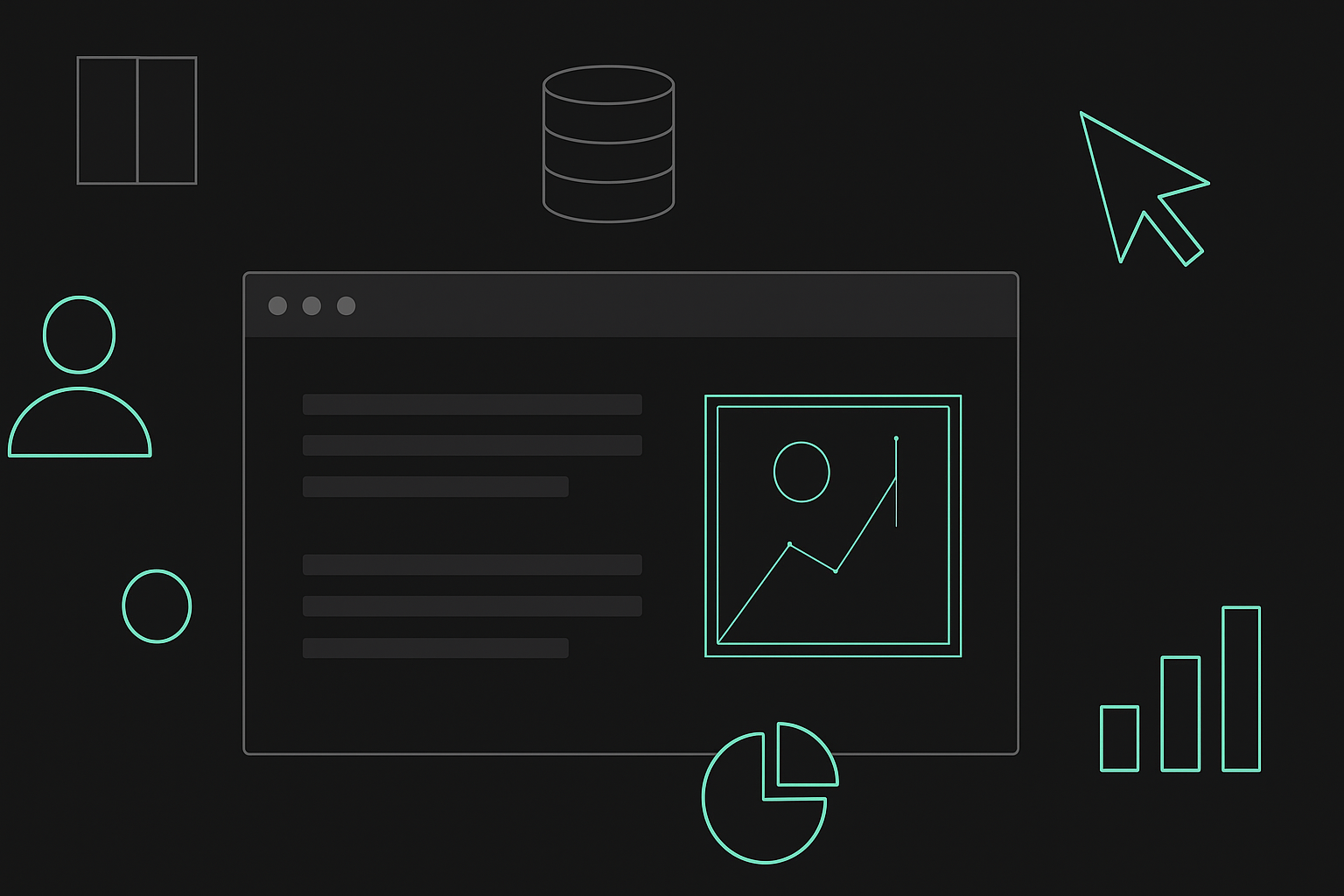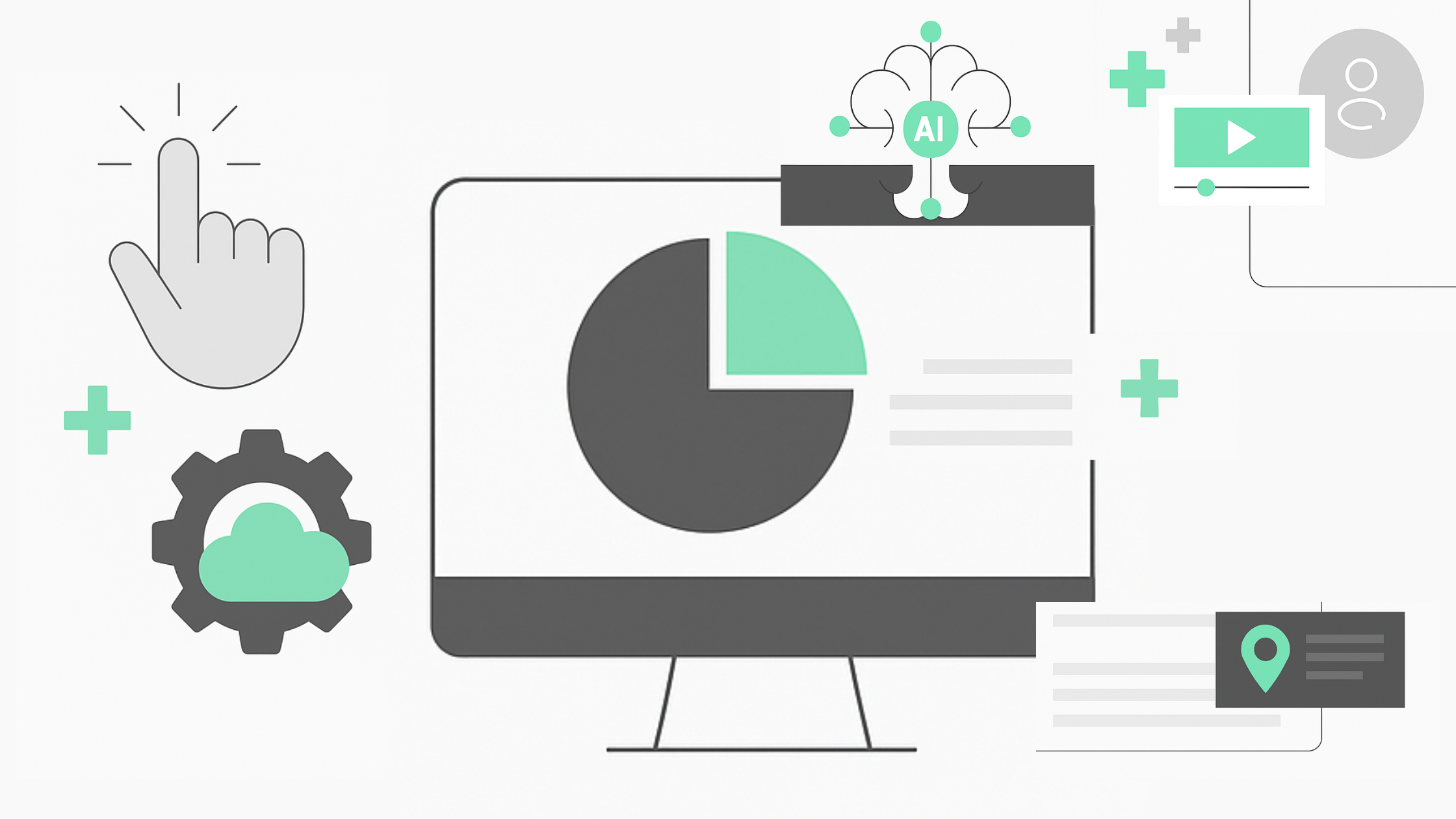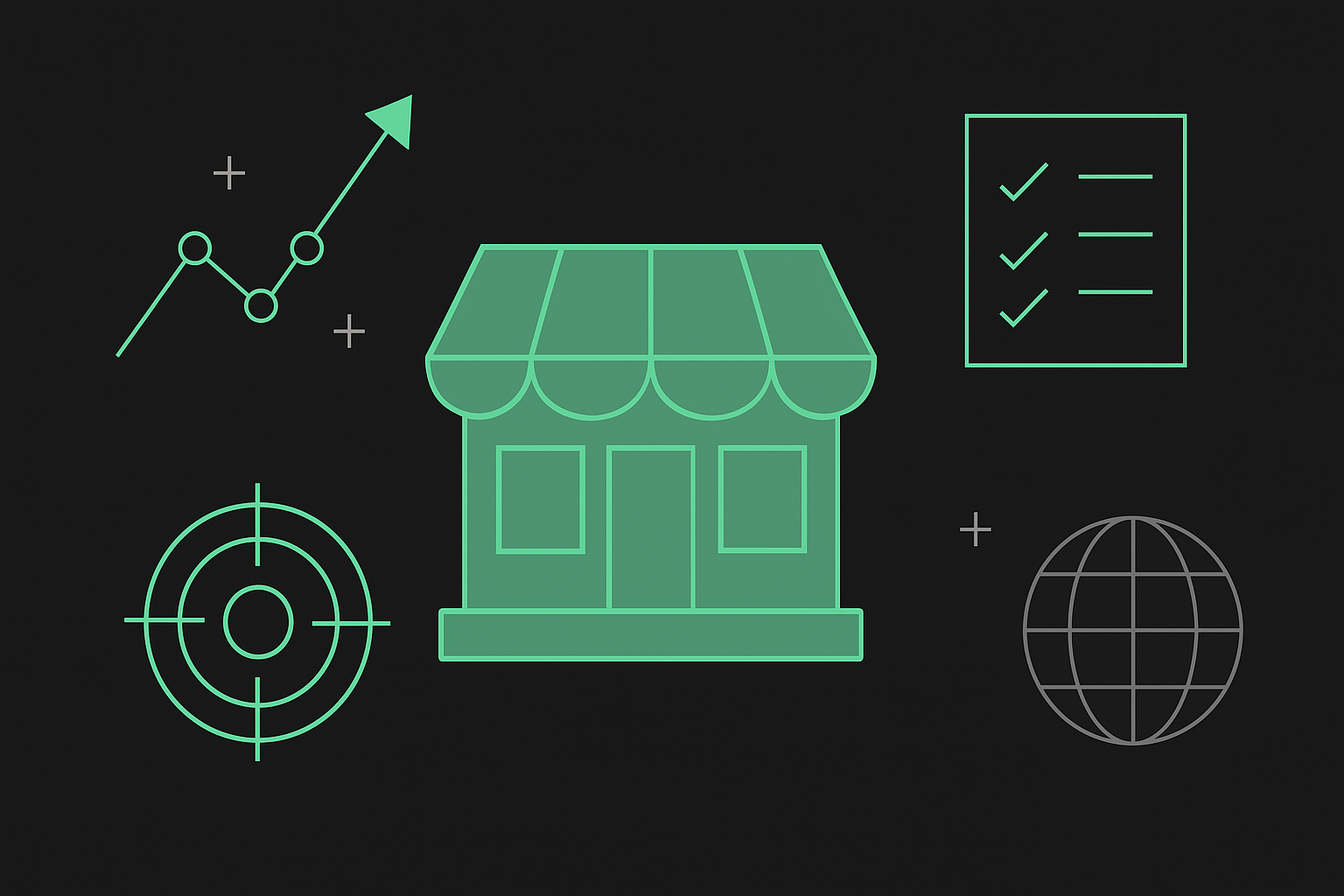Best HIPAA-Compliant Healthcare Marketing Tools
In the last couple of years, HIPAA’s policy updates have made compliance in marketing even more critical. With the release of the HHS bulletin in December 2022, and FTC complaints against major healthcare providers in 2024, the rules surrounding patient data and privacy have tightened significantly - which means healthcare marketing has become stricter.
However, the good news is, that with the right practices, you can achieve your marketing goals while keeping patient data secure and fully compliant with HIPAA’s Privacy and Security Rules.
In this guide, we’ll walk you through some of the best HIPAA-compliant marketing techniques and tools that can help you generate leads, grow your practice, and build lasting patient relationships—all while ensuring
Why is HIPAA Compliance in Healthcare Website Marketing More Important Than Ever?
Marketing in healthcare has always been challenging, but recent changes have made it clear that data protection and patient privacy must remain front and center.
In 2024, the FTC increased its scrutiny, taking action against major healthcare organizations like Monument and BetterHelp, for mishandling patient data by disclosing it to third-party advertisers without consent. This highlights the potential consequences of non-compliance, such as hefty fines, legal action, and a damaged reputation.
So why is HIPAA compliance in healthcare marketing more important than ever? Let’s break it down:
- Patient Privacy: Protecting sensitive health information, or PHI (Protected Health Information), is a foundational element of HIPAA. Non-compliance can result in unauthorized sharing of PHI, where companies share user data with platforms like Meta and Google for advertising purposes, undermining patient trust and violating HIPAA standards.
- Data Security: HIPAA compliance ensures data security, preventing unauthorized access to PHI. Incorporating pixels or tracking tools on healthcare websites without proper safeguards can easily expose patient information to third parties. This is why it is essential to ensure secure data handling protocols for protecting your patients and your practice.
- Trust Building: In healthcare, trust is everything. When patients know that their data is being handled responsibly, it fosters confidence in their healthcare provider. Violating this trust can not only lead to legal repercussions but also harm your reputation in the long run.
- Legal Compliance: Avoiding penalties is a crucial motivator for maintaining HIPAA compliance. Non-compliance can lead to serious legal consequences, including fines and mandatory corrective actions. The FTC’s action against companies signals a clear message: healthcare providers must handle patient data with extreme caution or face the consequences.
HIPAA-Compliant Website Content Management Platforms (CMS)
Among the popular options for healthcare websites, WordPress and Drupal stand out as viable choices. These platforms offer a range of features that can be configured to meet HIPAA requirements.
- WordPress, known for its user-friendly interface and flexibility, can be enhanced with security plugins designed to protect patient data. By implementing user authentication and access control, you can ensure that only authorized personnel have access to sensitive areas of your website.
- On the other hand, Drupal is another robust CMS option that excels in its security capabilities. This platform provides extensive functionalities for user management and access control, making it suitable for handling Protected Health Information (PHI). Like WordPress, Drupal also places a strong emphasis on regular security updates, which is critical for maintaining compliance with HIPAA regulations.
Best Website Management Features For HIPAA-Compliant CMS Platforms
Irrespective of the CMS platform you choose, it's crucial to look for the following key features
- HIPAA-Compliant Hosting Providers: Selecting a hosting provider specializing in HIPAA-compliant services is a critical first step. These providers implement necessary security measures, such as data encryption and regular backups.
- User Authentication and Access Control: Protect sensitive patient information by restricting access to authorized users only.
- Encryption of Stored Data: Safeguard stored data with encryption to prevent unauthorized access.
- Regular Security Updates: Regularly assess your website’s security to identify vulnerabilities and ensure compliance with HIPAA regulations. Keep your CMS and plugins updated to protect against emerging security threats and schedule regular backups of your website data to prevent loss in case of a security breach.
- Audit Logging Capabilities: Implement logging features to monitor access and changes to sensitive data.
- Secure Forms and Data Collection: Utilize secure forms for patient interactions, ensuring data is encrypted during collection.
- Train Staff on Data Security Practices: Educate your team about HIPAA compliance and secure data handling practices to minimize the risk of data breaches.
Form Building and Patient Data Collection Tools
Whether it's intake forms, appointment scheduling, or feedback surveys, any form that handles patient information or PHI must comply with HIPAA regulations.
Several HIPAA-compliant form-building tools, like Formstack HIPAA and JotForm HIPAA, offer secure methods for gathering patient information without risking unauthorized access or data breaches. These tools provide encryption, access control, and audit trails to meet stringent privacy standards while allowing for customization and integration with other systems.
Best HIPAA-Compliant Form Builder - Formstack vs. JotForm
When choosing a HIPAA-compliant form builder, there are a few key features to consider: encryption, access controls, audit trails, and integration capabilities.
- Formstack HIPAA offers a high level of customization and extensive integration options, making it an ideal choice for larger healthcare organizations that require flexibility and seamless workflows.
- JotForm HIPAA, while slightly less customizable, is user-friendly and still meets all key requirements for HIPAA compliance, making it a solid choice for smaller practices or those looking for a simpler solution.
Here’s a side-by-side comparison of two of the most popular options:
Best Practices for Secure Healthcare Data Collection
Beyond choosing the right form-building tool, healthcare providers must follow best practices for secure data collection and storage. These include:
- Encryption: Always use forms with end-to-end encryption, like the 256-bit SSL offered by Formstack and JotForm, to ensure that data is secure both during collection and while at rest.
- Access Controls: Limit access to sensitive patient data by setting user roles and permissions. HIPAA-compliant tools like Formstack and JotForm provide granular access controls to prevent unauthorized personnel from accessing PHI.
- Audit Trails: Ensure that any form tool you use provides detailed audit trails. These logs track who accessed or modified patient data and when which is crucial for both security and compliance.
- Data Validation: Use built-in data validation features to ensure the accuracy of information collected from patients. For example, validating email addresses or phone numbers reduces the chances of errors that could compromise patient communication.
- Regular Security Audits: Conduct regular audits of your data collection processes to ensure ongoing compliance with HIPAA regulations. This can include reviewing audit trails, assessing data encryption methods, and ensuring secure data storage practices are in place.
HIPAA-Compliant Analytics and Tracking Tools
In healthcare marketing, tracking and analyzing user behavior is essential for improving patient engagement and website performance. However, traditional analytics tools, like Google Analytics, are not designed with HIPAA compliance in mind, as they often collect personally identifiable information (PII) such as IP addresses or use third-party cookies. This poses a significant risk when managing Protected Health Information (PHI) on healthcare websites.
Tools like Piwik PRO and Matomo offer secure hosting and full control over data collection, while Improvado and CallRail provide specialized features for securely tracking user interactions and managing marketing data.
Steps to Configure Analytics Tools for HIPAA Compliance
Here are some extra precautions to take to ensure that your analytics tracking is HIPAA-compliant:
- Disable IP Address Collection: IP addresses can be classified as PII, so it’s critical to either disable or anonymize their collection. Use analytics tools that offer IP masking to maintain compliance.
- Anonymize User Data: Remove or obscure any personal identifiers within your analytics tracking. This includes using de-identified data to ensure that patient privacy is maintained.
- Implement Proper Access Controls: Ensure that only authorized personnel have access to analytics data that might contain PHI. Role-based access and secure login procedures are essential for maintaining compliance.
- Use First-Party Cookies Only: Rely on first-party cookies instead of third-party ones to minimize the risk of external data exposure. Tools like Piwik PRO and Matomo allow you to track user behavior with first-party cookies, reducing the chance of sharing PHI with third-party networks.
- Regularly Audit Data Collection Practices: Perform regular audits of your data collection and tracking procedures to ensure they align with HIPAA standards and that any potential risks are identified and mitigated promptly.
De-Identifying Data for Marketing Analysis
When analyzing patient data for marketing purposes, de-identification is key to maintaining compliance. This means removing or obfuscating any information that can be linked back to individual patients while still gaining valuable insights for improving marketing efforts.
- Aggregate Data: Instead of tracking individual user behavior, focus on trends and patterns in larger groups of users.
- Limit Event Descriptions: In tracking custom events, avoid using descriptive terms that can indicate the user’s specific health conditions or treatments. For example, rather than using event titles like “Paid: Therapy,” use more generic labels such as “Service Accessed.”
Privacy-Friendly CRM Tools for Patient Data
If you're managing patient relationships online, using a HIPAA-compliant CRM is essential to keep patient data secure and ensure that all interactions are handled safely. These platforms help you stay organized while adhering to strict data protection requirements, safeguarding sensitive information like communications and medical records.
- Salesforce Health Cloud is a popular option built specifically for healthcare, offering features like encrypted data storage and role-based access controls to ensure that only authorized personnel have access to patient information.
- Another strong contender is hc1 CRM, which is designed to securely manage patient relationships, offering powerful tools for PHI management and data security.
- LeadSquared Healthcare CRM also stands out for its secure patient communications and HIPAA-compliant data storage, making it a reliable choice for healthcare providers focused on protecting patient privacy.
CRM Features That Protect Patient Data
HIPAA-Compliant Email Marketing Platforms
Email marketing is a powerful tool for engaging with patients, but it comes with the responsibility of protecting sensitive health information. If your emails contain PHI, you must follow strict HIPAA guidelines to ensure patient privacy and data security.
HIPAA-compliant email marketing platforms like Paubox Marketing and LuxSci provide the necessary safeguards for healthcare providers.
- Paubox encrypts every email end-to-end, ensuring all communications meet HIPAA standards while allowing you to run secure marketing campaigns.
- Similarly, LuxSci offers encrypted email marketing with the added benefit of a robust audit trail, which helps track any PHI-related emails and maintain full compliance. These platforms help ensure patient data is safe and that your email campaigns adhere to legal requirements.
Best Encryption and Security Measures for Email Marketing Tools
Balancing Healthcare Marketing Effectiveness with Patient Privacy
Maintaining HIPAA compliance in healthcare marketing is crucial to protect patient privacy while still achieving marketing effectiveness. It’s all about finding the balance between engaging your audience and safeguarding sensitive health information. Best practices include using HIPAA-compliant tools, anonymizing data, securing communications, and regularly auditing your marketing strategies to ensure adherence to regulations.
Regular compliance reviews are essential for staying updated with evolving rules, such as those highlighted in recent HHS and FTC updates.
In an age where patient data security is paramount, ensuring that your website is compliant not only helps avoid legal issues but also fosters confidence among your patients in your commitment to protecting their sensitive health information.
If you’re looking to prioritize both compliance and marketing effectiveness and in need of expert advice, book a session with one of our team of experts, and let’s help ensure you’re protecting patient privacy at every step.










